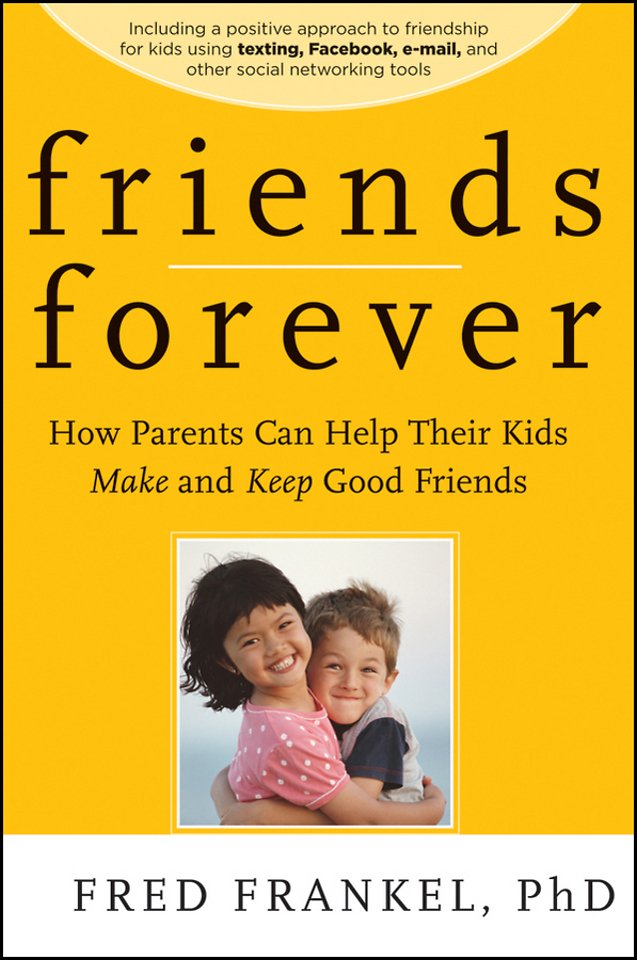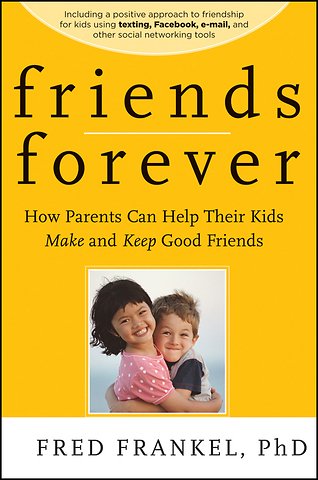Friends Forever – How Parents Can Help Their Kids Make and Keep Good Friends
How Parents Can Help Their Kids Make and Keep Good Friends
Paperback Engels 2010 9780470624500Samenvatting
A systematic plan for parents to help their kids acquire and sustain friendships
Every parent hopes their child will develop healthy and happy friendships. However, most parents don′t know what to do that will encourage their child to be a friend and attract friends. The author offers clear–cut friendship–making guidelines for parents and their children. Some of the book′s recommendations include: don′t over–schedule a child′s time; guide children to participate in "friend–attracting" activities; seek out friends in the neighborhood.
The author includes methods for dealing with bullying and inappropriate friendships
Offers clear guidance for helping children become a good friend and attract lasting friendships for life
Shows how to teach kids the social and emotional intelligence skills they need to form friendships such as listening, empathy, compassion, recreational conversation
The book also includes techniques for teaching kids how to use MySpace, Facebook, and Twitter in positive ways that will foster friendships.
Specificaties
Lezersrecensies
Inhoudsopgave
<p>Introduction.</p>
<p>Part One: How Parents Can Help.</p>
<p>1. Making Time for Friends.</p>
<p>2. Curbing Interests That Prevent Friendships.</p>
<p>3. Developing Interests That Attract Friends.</p>
<p>4. Using Your Neighborhood School for Friends.</p>
<p>5. Using Organized Activities to Find Friends.</p>
<p>6. Improving Your Networking Skills.</p>
<p>Part Two: Making Friends.</p>
<p>7. Joining Others at Play.</p>
<p>8. Becoming a Good Sport.</p>
<p>9. Looking for Closer Friends and Joining a Friendship Group.</p>
<p>10. Using the Telephone to Make Friends.</p>
<p>11. Using Texting and Instant Messaging to Connect with Friends.</p>
<p>12. Having Fun Play Dates.</p>
<p>13. Becoming a Better Host.</p>
<p>14. School Break and Vacation Activities That Promote Friendships.</p>
<p>Part Three: Keeping Friends.</p>
<p>15. Encouraging Wise Choices.</p>
<p>16. Discouraging Poor Choices.</p>
<p>17. Listening to Your Child′s Worries.</p>
<p>18. Having Friends Stolen.</p>
<p>19. Losing a Close Friend.</p>
<p>20. Divorce and Moving Away.</p>
<p>Part Four: Dealing with Teasing, Bullying, and Meanness.</p>
<p>21. Taking the Fun out of Teasing.</p>
<p>22. Stopping Rumors.</p>
<p>23. Staying Away from Children Who Fight.</p>
<p>24. Dealing with Children who Bully.</p>
<p>Part Five: Helping Your Child Out of Trouble.</p>
<p>25. Working with Adults Who Have Trouble with Your Child.</p>
<p>26. Stopping Your Child′s Fighting.</p>
<p>27. Overcoming Hyperactive Behavior.</p>
<p>28. Stopping Your Child′s Bullying.</p>
<p>29. Not Noticed by Classmates.</p>
<p>30. Building Friendship Skills and Overcoming a Negative Reputation.</p>
<p>Notes.</p>
<p>Resources.</p>
<p>About the Author.</p>
<p>Index.</p>
Rubrieken
- advisering
- algemeen management
- coaching en trainen
- communicatie en media
- economie
- financieel management
- inkoop en logistiek
- internet en social media
- it-management / ict
- juridisch
- leiderschap
- marketing
- mens en maatschappij
- non-profit
- ondernemen
- organisatiekunde
- personal finance
- personeelsmanagement
- persoonlijke effectiviteit
- projectmanagement
- psychologie
- reclame en verkoop
- strategisch management
- verandermanagement
- werk en loopbaan

